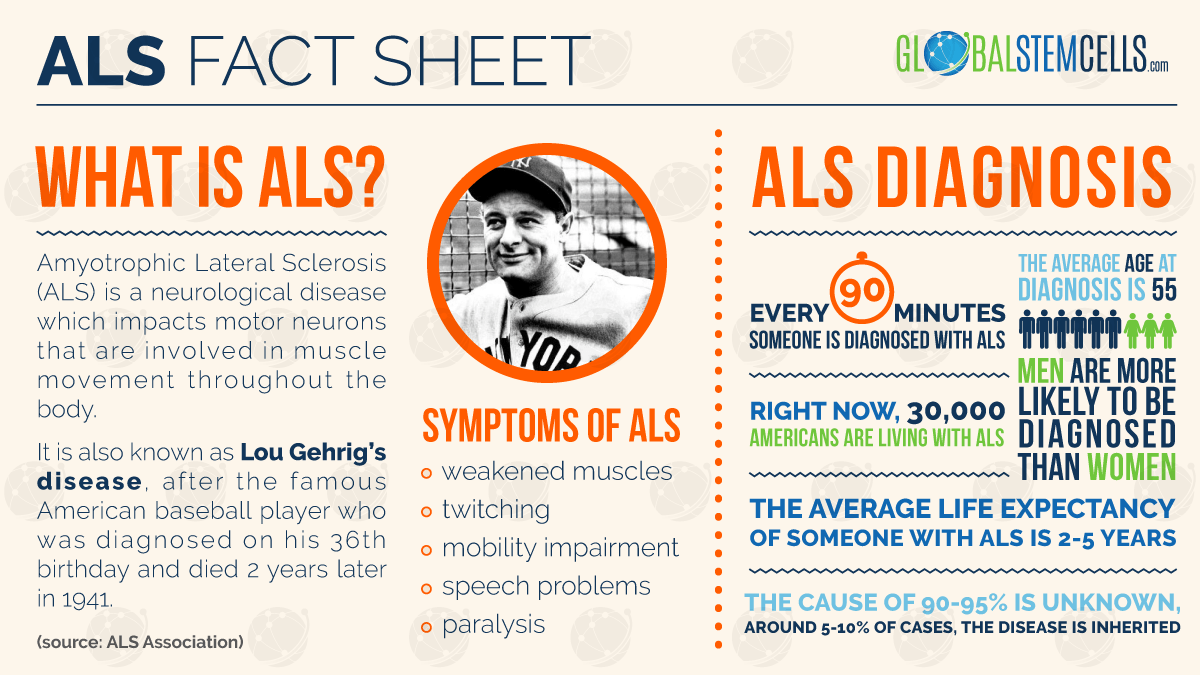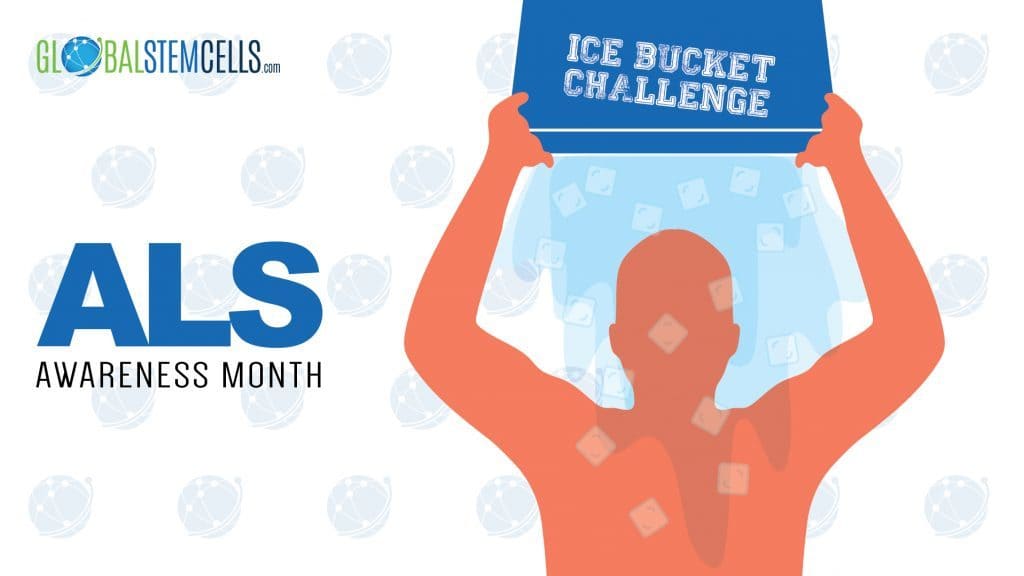Amyotrophic Lateral Sclerosis (ALS) is a neurodegenerative disease that results from the death of neurons or nerve cells that control your muscles. These nerve cells are located in the brain and in the spinal cord. It is a disease that has no cure and the treatments available so far are geared towards managing its symptoms.
It is estimated that 3000 people are living with the disease in Canada and, given its terminal nature, a third of these will succumb to it.
On average 1000 new cases are reported each year. ALS Awareness Month, which will be observed in June, has a twin purpose: to create awareness of this relatively rare but deadly disease (which kills 2 to 3 Canadians every day) and to seek active involvement from the public in pushing for more funding in the effort to find a cure.
Understanding ALS
There are two types of ALS. The first type is Sporadic ALS. Sporadic ALS shows no bias towards its victims and anyone may come down with it regardless of age, ethnicity or gender. The second type is Familial ALS, which is inherited and accounts for 5 to 10 % of all reported cases in Canada.

Symptoms of ALS
ALS has a wide range of symptoms which get progressively worse as the disease advances. These include fatigue, muscle cramping and twitching, pain and feeling weak. Tripping, dropping things and slurred speech are indications that ALS has set in. Weight loss and shortness of breath are also signs associated with this disease.
The progression of the disease is marked by worsening of the symptoms. The tripping and falling degenerates into greater mobility problems and one is eventually unable to move around unaided. Shortness of breath becomes more pronounced and will appear even with little or no exertion. Talking and projecting one’s voice takes more effort and becomes progressively difficult.
Sometimes the symptoms associated with ALS may seem to level out, staying the same for a long period of time. The fact is that there is no ‘stagnation’ stage of this disease. It is progressive and invariably fatal with most patients succumbing to it between 2 to 5 years after the initial diagnosis. Some live longer (as much as 10 years) but it is important to emphasise once again that the disease has no cure and does not go into remission. This is why ALS Awareness Month is so important in ensuring that research into the disease is kept going through the availability of funds and enabling legislation.
ALS Research
As it currently stands ALS research has shown remarkable progress and the scientific community is optimistic that a fuller understanding of the disease will eventually yield a cure. Already one important piece of the puzzle, relating specifically to Familial ALS, has fallen into place. With the discovery of the SOD1 gene (present in patients with Familial ALS) the battle to tame ALS progresses on a positive note. Other advances bolster this view and all are confident that with continued support and with proper funding a cure will eventually be found.
Several initiatives and activities have been lined up to mark ALS Awareness Month in June. These include the publication and distribution of educative booklets on the disease. There are versions of these publications specifically targeting children, teens and adults.
The Ice Bucket Challenge, which went viral in 2014, has so far seen $20 million invested in Canadian ALS research. Walks have been organised to take place all across Canada. The 90 walks planned, with 32 in Ontario alone, will aim not only to raise the much-needed funds for research but also provide the all important moral support to ALS patients and their families.




 English
English